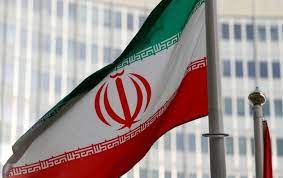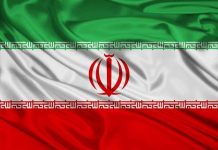DM Monitoring
TEHRAN: Iran’s president said on Thursday the UN nuclear watchdog should drop its “double standards” if Tehran is to resume cooperation with it over the Islamic Republic’s nuclear programme, Iranian state media reported.
President Masoud Pezeshkian last week enacted a law suspending cooperation with the International Atomic Energy Agency, and the IAEA said it had pulled its last remaining inspectors out of Iran.
Relations between Iran and the IAEA have worsened since the United States and Israel bombed Iranian nuclear facilities in June, saying they wanted to prevent Tehran developing an atomic weapon. Iran says its nuclear programme is for peaceful purposes only and denies seeking atomic weapons.
“The continuation of Iran’s cooperation with the agency (IAEA) depends of the latter correcting its double standards regarding the nuclear file,” state media quoted Pezeshkian as telling European Council President Antonio Costa by phone.
“Any repeated aggression (against Iran) will be met with a more decisive and regrettable response,” he said.
Tehran accuses the IAEA of failing to condemn the attacks by the United States and Israel, and says the nuclear watchdog paved the way for the bombing by issuing a resolution declaring Iran in breach of its non-proliferation obligations.
“Failure to observe the principle of impartiality in reporting is one of the examples that casts doubt on the status and credibility of the IAEA,” Pezeshkian said.
The bombing of Iran’s nuclear facilities led to a 12-day war, during which Iran launched drones and missiles at Israel.
IAEA inspectors have not been able to inspect Iran’s facilities since the bombing campaign, even though IAEA chief Rafael Grossi has said it is his top priority.
Earlier, Iranian President Masoud Pezeshkian said in an interview released on Monday that Israel, which last month fought a 12-day war with Iran, had attempted to assassinate him.
“They did try, yes. They acted accordingly, but they failed,” Pezeshkian told US media figure Tucker Carlson in response to a question on whether he believed Israel had tried to kill him.
“It was not the United States that was behind the attempt on my life. It was Israel. I was in a meeting… they tried to bombard the area in which we were holding that meeting,” he said according to a translation of his remarks from Persian, in apparent reference to an alleged assassination attempt during the recent war.
On June 13, Israel launched an unprecedented bombing campaign against Iran, killing top military commanders and nuclear scientists.
The Israeli attacks took place days before Tehran and Washington were set to meet for a new round of nuclear talks which began on April 12.
More than 900 people were killed in Iran during the conflict, according to the judiciary.
The Israeli attacks drew waves of retaliatory drone and missile fire, killing 28 people in Israel, according to authorities.
The 12-day war between Iran and Israel saw it, along with the United States, launching strikes on Iranian nuclear facilities at Fordo, Isfahan and Natanz.




